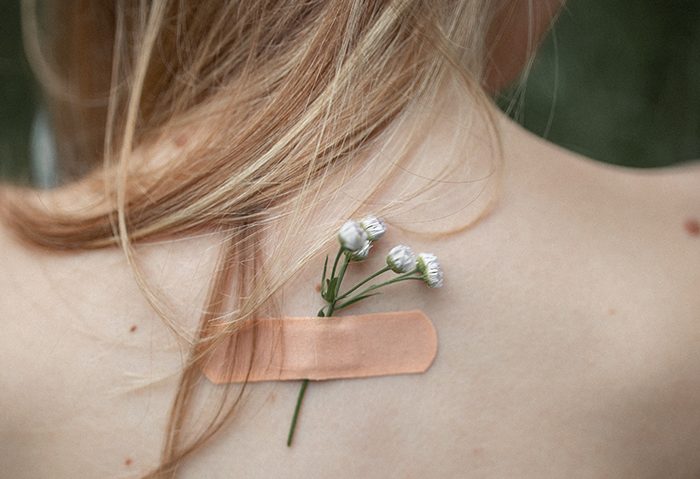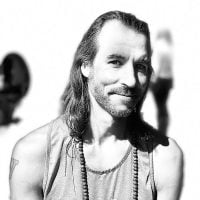Trauma—that’s a heavy word.
It carries around connotations of the darkest cruelty we humans inflict on each other.
For a long time, I didn’t think it applied to me. I’ve been blessed with a life that didn’t involve any major accidents, war wounds, or sexual assault. But, I’ve recently come to believe that I did suffer a trauma in childhood.
From the limited amount of literature I’ve read on it (mostly books on supporting a partner who is healing trauma), I know we’re not supposed compare. Each person’s trauma is just as real and important to them as anyone else’s. Still, I can’t help but think of my trauma as “little,” because it was nowhere near as horrific as other traumatic events I’ve heard from others.
And yet, my “little” trauma acutely shaped my relationship with the world, and influenced the course of my life.
I’ve never known how to fit in with the herd. I lack some fundamental instinct that the majority of others seem to have for understanding how to belong to a social group.
Middle school was a turning point, when the stratification of cliques really calcified. I was a total geek, I read science fiction and played Atari and Dungeons & Dragons. (I still consume prodigious amounts of sci-fi, but the gaming tapered off after college.)
If you’ve seen “Stranger Things,” it’s a pretty accurate picture of me and my friends growing up. And just like those characters, we were frequently harassed by the cool kids.
One particular incident from my seventh-grade science class stands out in my memory.
One day, the teacher was late, and the class started fooling around, causing trouble—as any group of adolescents is wont to do. At one point, somebody tossed a wad of paper in the direction of the table. I made the unfortunate mistake of yelling out, “Incoming!”—a running joke among my friends after an episode of “Star Trek” (of course “Star Trek”).
To this day, I’m still baffled by the intensity of the reaction that one little statement evoked among my peers. They mocked me mercilessly. I had no idea that was such a dorky thing to say. But some people just wouldn’t let it drop. For months, a couple kids called me “Incoming” whenever they saw me.
In retrospect, that episode was the culminating lesson that drilled the need to hide my true self from the world into the core of my being. Those kids taught me that when I expressed myself, people made fun of me.
To be fair, I think they had no idea of the impact of their actions on me. Shortly after the Incoming scene, one of the girls who had been leading the barrage asked to borrow a pencil from me. I refused, and she asked why. “Because you make fun of me all the time!” I replied in a voice shaking with hurt and anger. She seemed genuinely perplexed by my response, like she had absolutely no idea she participated in scarring me for f*cking life.
So there it is—my little trauma.
Even writing about it now, it seems pretty minor, but it taught me the way to survive social interactions was to be invisible, to draw as little attention to myself as possible. And to closely observe the social dynamic around me, analyzing everything in an attempt to figure out the proper, socially acceptable response to the situation at hand.
Even as an adult in the corporate workplace, I was constantly afraid of saying something that might blow my cover of normalcy. I don’t know if that qualifies as social anxiety disorder, but I do know it was exhausting to be around groups of people.
Although this trauma did shape my interactions with the world for the rest of my life, it only affected this one part of my psyche. It didn’t totally break me, and for that, I consider it “mild.” Throughout my life, I’ve had a loving and supportive family, and a small band of fellow freaks with which to enjoy tons of fun together.
It’s taken a long time, but I’m learning not to give a f*ck what other people think—especially now that I’m out of the confining corporate world and the hyper-conformist suburbs. It’s their loss if they’re trapped in restricting expectations of behavior. The world is changing, true self-expression is starting to be celebrated.
It’s been a journey, I haven’t had any counseling for this trauma, but my meditation teacher helped me uncover and work through these hidden, subconscious reaction patterns. And recently, I’ve found whole communities of welcoming, supportive, fellow weirdos—especially in Montezuma and Uvita, in Costa Rica, and even a pocket of open-minded people in northern Wisconsin.
I’ve excavated my true self and I’m learning to express myself fearlessly. It’s extraordinarily liberating to let go of the anxiety and emerge from hiding. I’m pretty happy with who I am now, so I suppose I owe those kids some measure of gratitude for helping to shape me, even though it sucked at the time.
We hear a lot about trauma here on Elephant Journal—usually the “big” kind—for good reason; it’s an important topic. Now, I’m wondering if anyone else out there survived little traumas like mine.
Because they’re smaller and maybe not affecting our entire lives, it can be easier to ignore them, especially if we have children, a partner dealing with major trauma, or we’re just busy with life. However, at some point, we need to shine a light on these wounds and heal them.
What’s your “little” trauma?


 Share on bsky
Share on bsky





Read 12 comments and reply